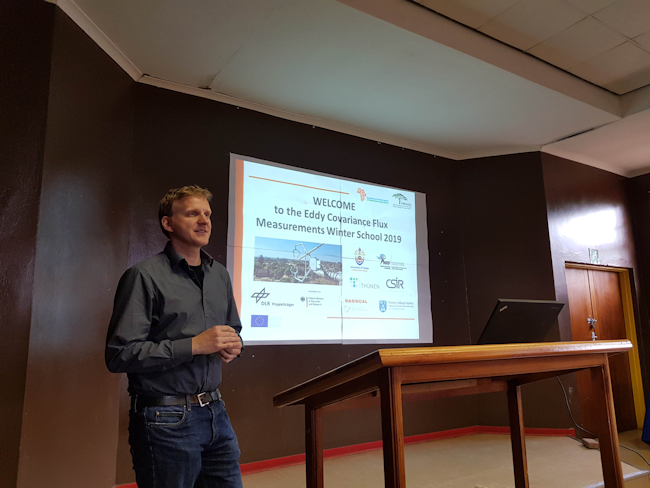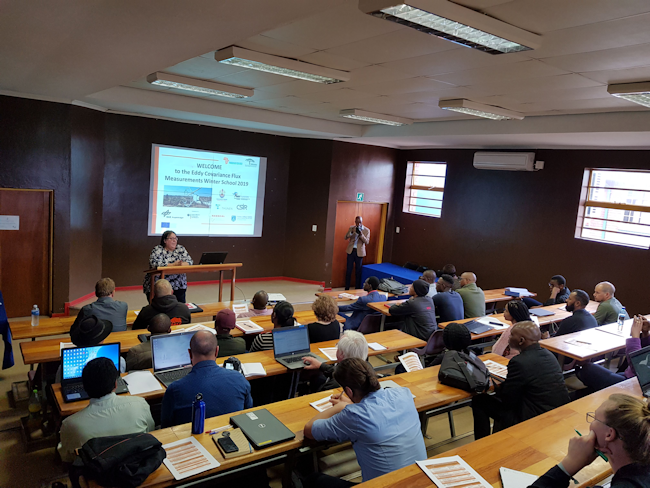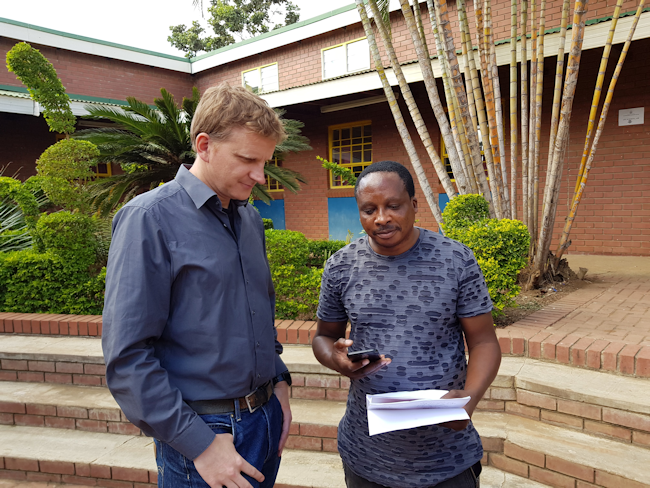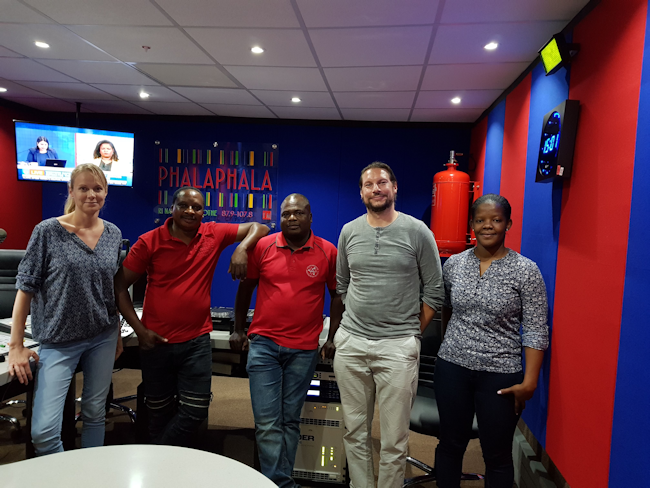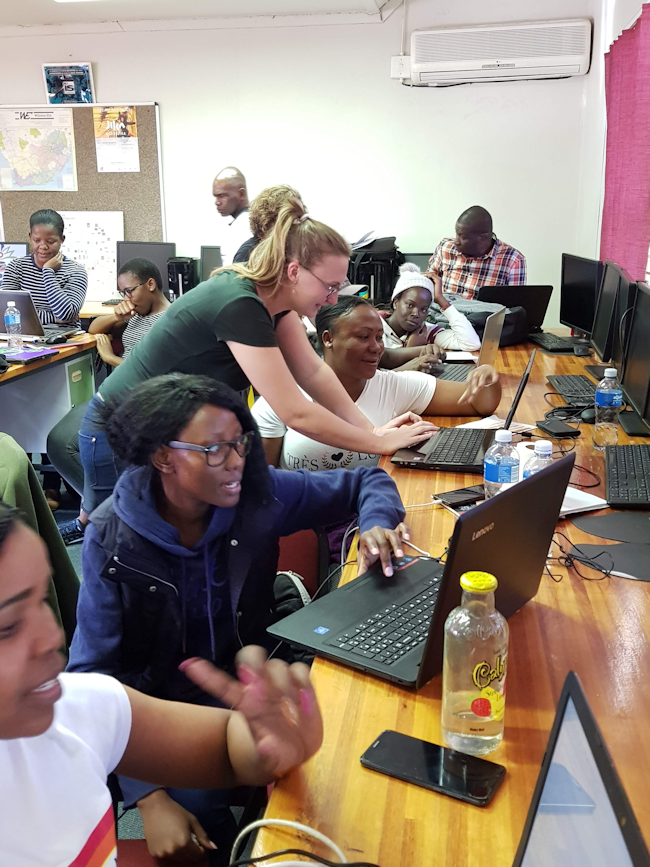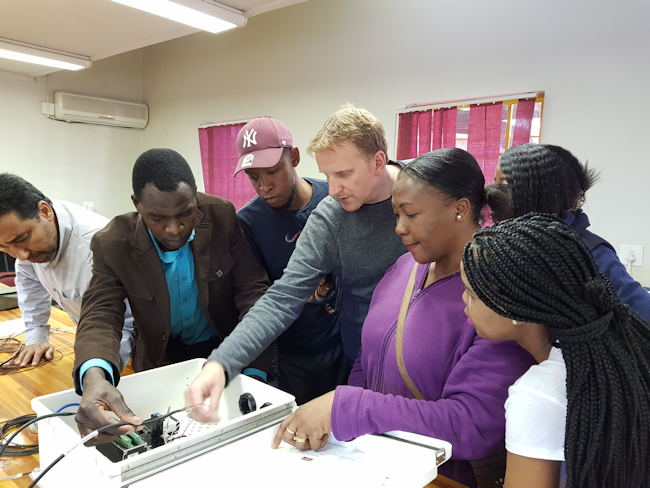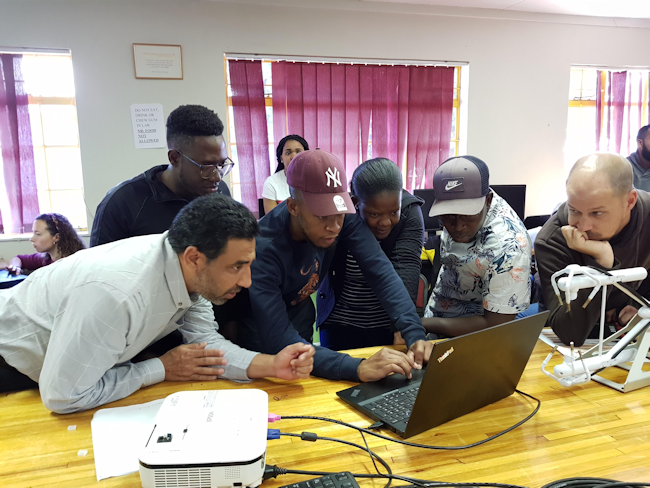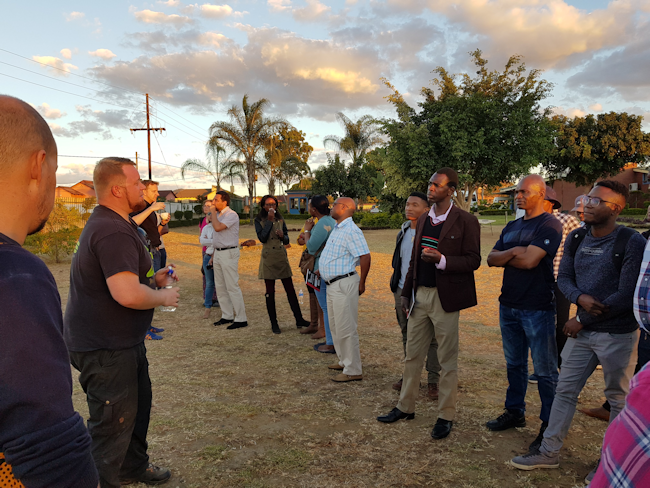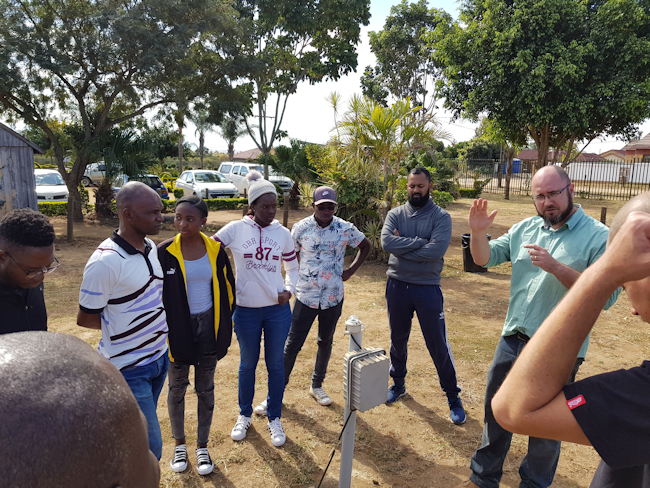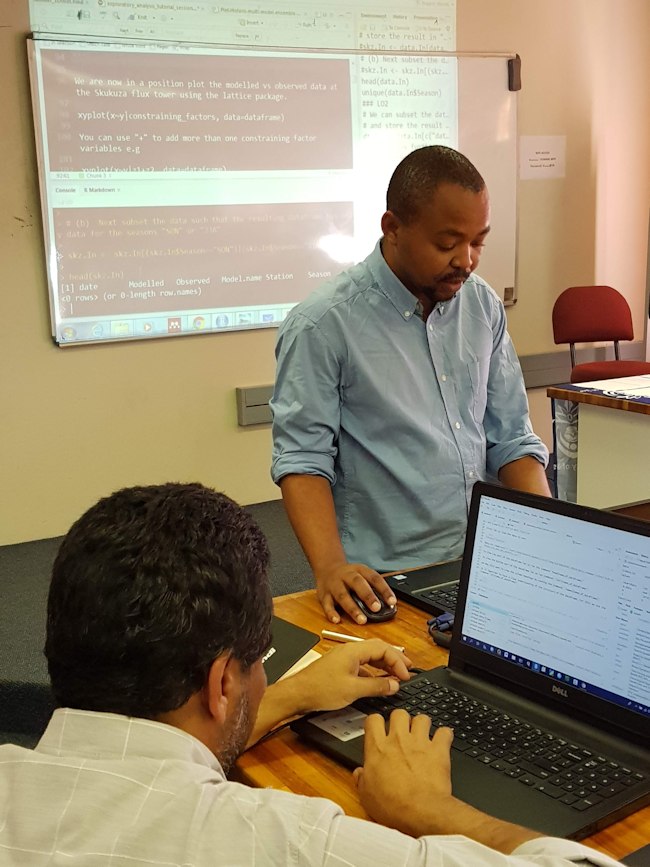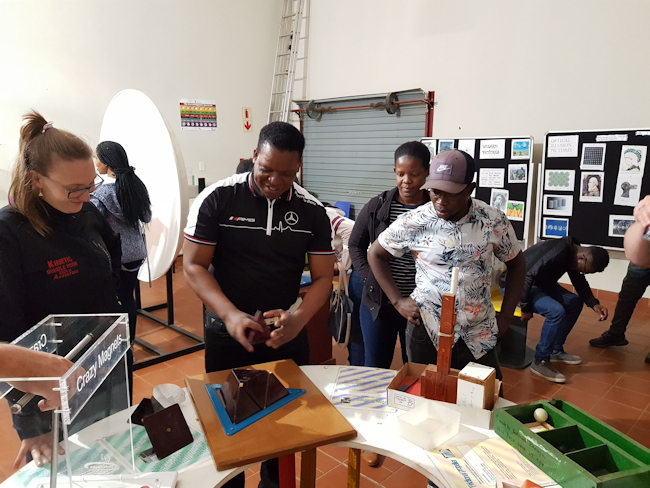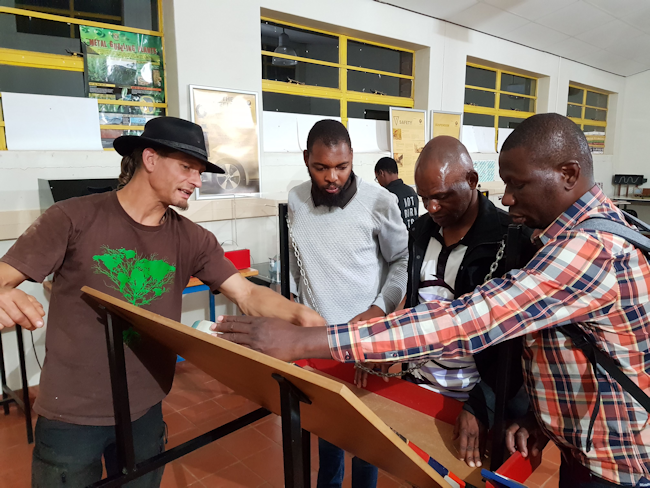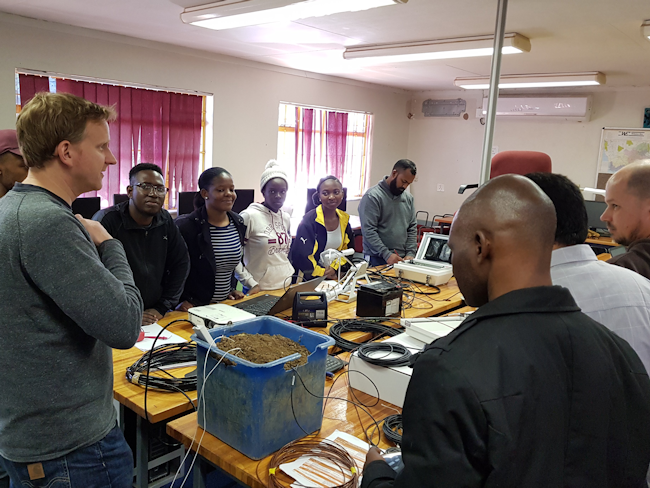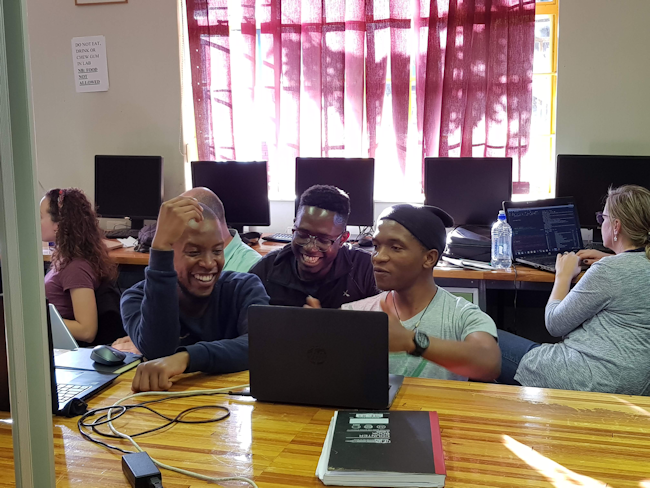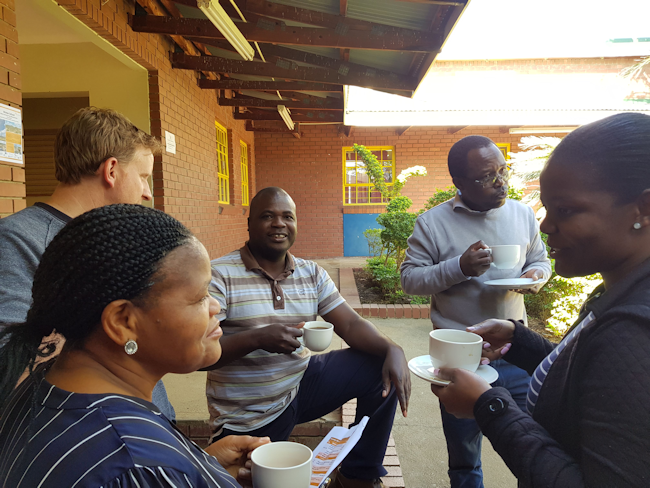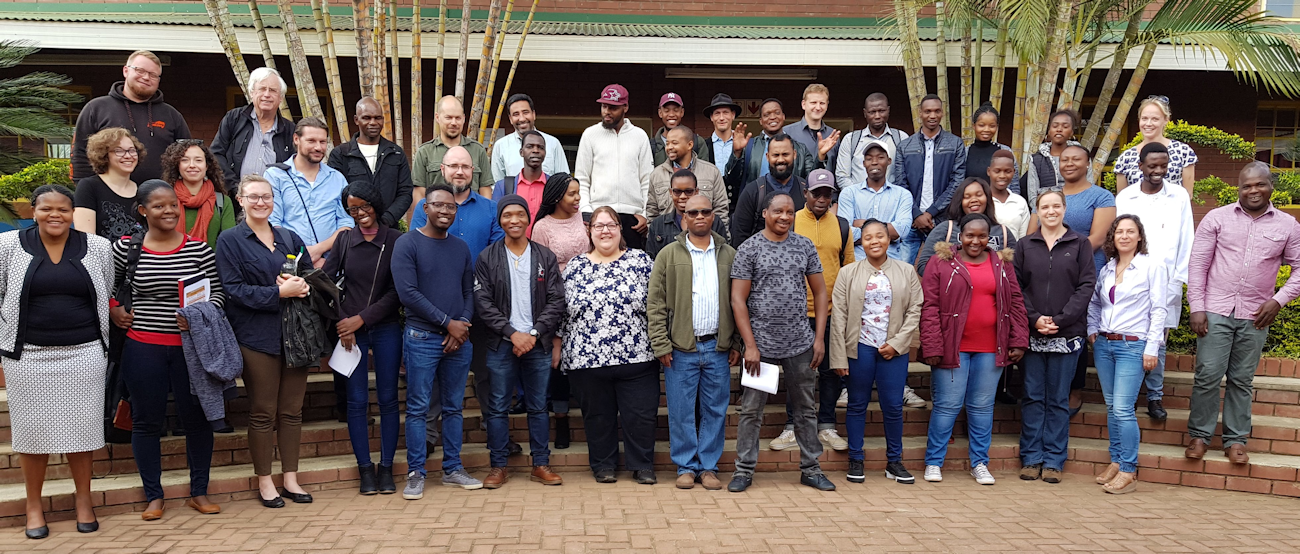06/17/19
Building knowledge of Greenhouse Gas measurement techniques in southern Africa
We have successfully finalized the first Winter School in Eddy Covariance Flux Measurements! Big thanks to the 20 motivated young researchers and technicians from South Africa, Botswana, Zambia, Zimbabwe, Angola and Nigeria for active participation and making our course very special. We are also grateful to our hosts at the Vuwani Science Resource Centre of the University of Venda for their support and for helping to promote us and raise the topic of climate change and greenhouse gas measurements in the local media. The interactions at our local research site were unforgettable!
The five-day course (10.-14.6.) focused on greenhouse gas monitoring in Africa, with particular emphasis in South Africa. In addition to theoretical lectures and discussing the knowledge gaps in Africa, we offered a variety of hands-on sessions on measurement techniques, from equipment set-up to data processing, and finally to the plotting of results. As the EMSAfrica project is running Eddy Covariance flux towers in its research sites (read more of the project setup here), one of which is based at the Vuwani site, much of the focus was on Eddy Covariance techniques. Furthermore, a variety of other relevant sessions, ranging from soil chamber measurements to weather station setup, were offered. The final course programme can be accessed here.
We were pleased that many of the projects' collaborators, including senior experts as well as young researchers, could bring their expertise to the course as teachers. The Winter School was co-led by Christian Brümmer from the Thünen-AK and Gregor Feig, the manager of SAEON/EFTEON. It was organised in collaboration with our southern African EMSAfrica partners and the EU Horizon 2020 project SEACRIFOG. Via the SEACRIFOG project, Alecia Nickless (Bristol University), Ana López-Ballesteros (University College Dublin) and Johannes Beck (SASSCAL) joined us as teachers. Graham von Maltitz (CSIR), Tony Palmer (ARC), Mohau Mateyisi (CSIR) and Phumudzo Tharaga (University of the Free State) led individual sessions, and Amukelani Maluleke and Humbelani Thenga (CSIR) and Jean-Pierre Delorme and Jens Jüdt (Thünen-AK) provided technical support and co-teaching at the technical sessions. Big thanks to all!!
The course was generously supported by the BMBF via the PT-DLR and it marks the first in a series of courses for the SPACES projects during the next three years in an Integrated Training Programme on the Adaptation on Complex Earth Systems Processes (for more information contact Mari Bieri, mari.bieri@thuenen.de). Partial funding was provided by our SASSCAL partners.
We hope that we managed to support our participants in taking better advantage of existing greenhouse gas measurements infrastructures and data in southern Africa, and linking them to the research community. We are going to organise a few more similar courses on the coming years - watch this space!
